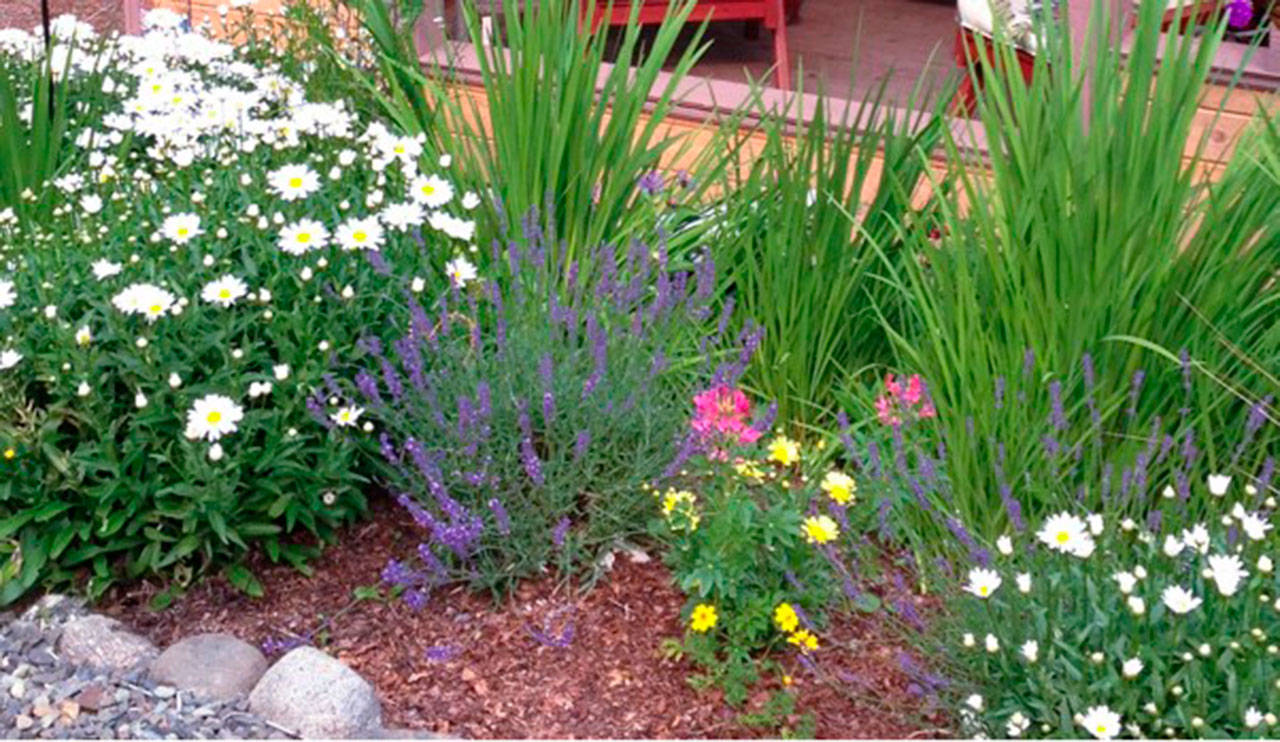A weed is a wild plant growing out of place in the garden, which is daring to compete with chosen plants for water, nutrients and space.
Weeds very efficiently absorb all the necessary resources for plant growth, making it more difficult for desired plants to thrive.
The challenge isn’t merely recognizing weeds when they are first sprouting, but knowing how to prevent and control them.
Many weeds germinate from seeds and already have been happily growing when we first notice them. To slow or prevent germination, consider planting annuals and vegetables close together, blocking sunlight from the soil. It is beneficial to plant groundcovers and ground-hugging plants beneath taller ones in a mixed planting.
The goal is to blanket the soil well so that sprouting weeds will lack sufficient sunshine to become established.
Other weeds produce new individuals without formation of seeds or spores. These others may reproduce through rhizomes, tubers or bulbs. There also are vegetative rootstocks with internodes and adventitious buds that form to produce new plants.
Perennial weeds are often the most difficult weed species to manage due to significant energy reserves stored within the soil. In order to bring these weeds under control, energy reserves must be depleted. A good option is to use cover crops which suppress perennial weeds and reduce energy reserves.
Tried and true prevention strategies like soil solarization are quite successful. Wait for the hottest months of the summer to till the soil and remove the weeds. Water the soil well, cover with 2 millimeter clear plastic, anchor the edges tightly and in 4-6 weeks the soil will be weed-free and ready for fall planting.
Mulch is a great way to improve soil and prevent weeds. Using ground bark, sawdust or leaves, cover the garden bed with a thick layer. This will hold in the moisture, suppress weeds and insulate the soil. It also makes the garden look neat and tidy!
Laying down a proper landscape fabric underneath the mulch will be even more effective. At planting time, cut a small X through the mulch and fabric to plant prized vegetables and annuals.
When using herbicides, please use caution. Properly select a chemical for the plants you are growing. Carefully read and follow the label directions for application procedures and appropriate personal protective equipment.
When a weed problem is severe enough, talk to a specialist about using a weed sprayer. Remember, you are responsible for any damage as a result of failure to follow the label’s directions.
Pre-emergent herbicides work by inhibiting weed germination, so your soil must be weed-free for this strategy to work.
Other groups of chemical applications include post-emergent herbicides. They are contact herbicides and work by interfering with the plants’ metabolism.
The best way is to control weeds physically. Pull, hoe, dig or mow weeds. When the soil is wet, it is best to pull. When the soil is dry, it is best to hoe. The younger the weed is, the easier this is to accomplish.
Remember, the goal is to keep weeds from going to seed. There is a vast array of tools to help you do this physical work. Talk to a garden implement specialist when shopping for the appropriate tools that will make this work easier and faster to do.
Weed control is merely garden housekeeping. A weed-free garden is attractive and healthy. The sunlight, water, nutrients and space are devoted to growing the plants that are desirable in our gardens. Since weeds may be hosts for garden pests and pathogens, it is most beneficial to control them.
And more …
The Brown Bag lunch lecture on May 11 will be on “Emerging Pest Problems” presented by Bob Cain. The lecture will be in the Clallam County Courthouse from noon-1 p.m.
The Second Saturday Garden Walk will be held at the Street Community Garden — 328 E. Fifth St., Port Angeles — from 10-11:30 a.m. The focus is on food crops and what is happen in both Master Gardener Demonstration Gardens.
Note: The Master Gardener Foundation of Clallam County membership is closed to anyone who is not a Clallam County Master Gardener. You are welcome to make a cash donation to the group to support the Woodcock Demonstration Garden and other community outreach efforts. Please check out its website (www.mgf-clallam.org) to learn how you can support the Master Gardeners.
Elaine Webber is a Clallam County Master Gardener.


